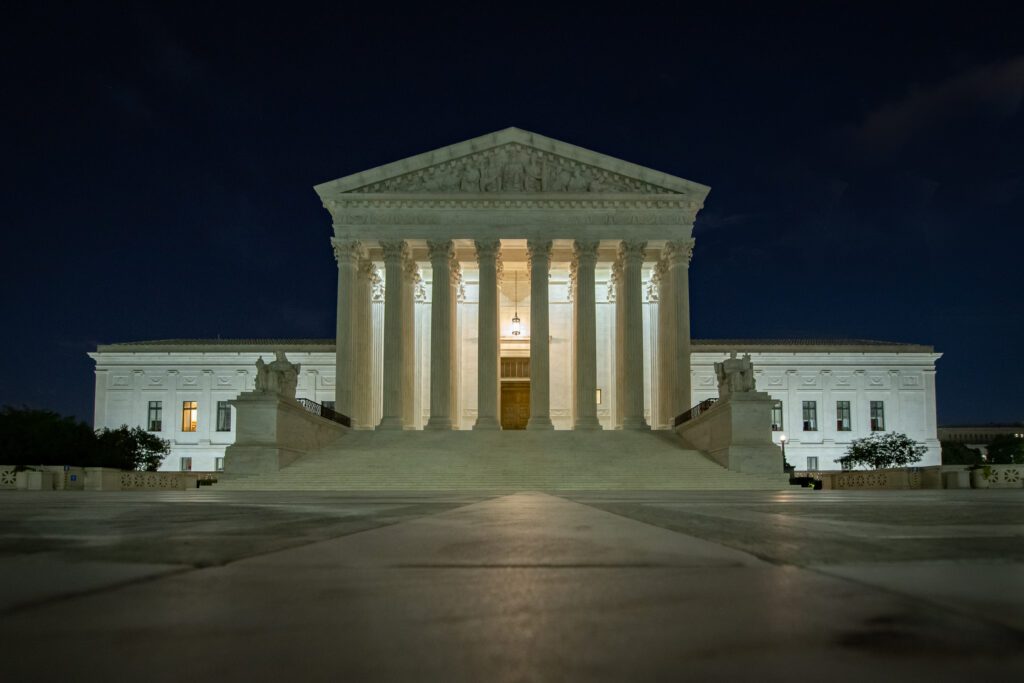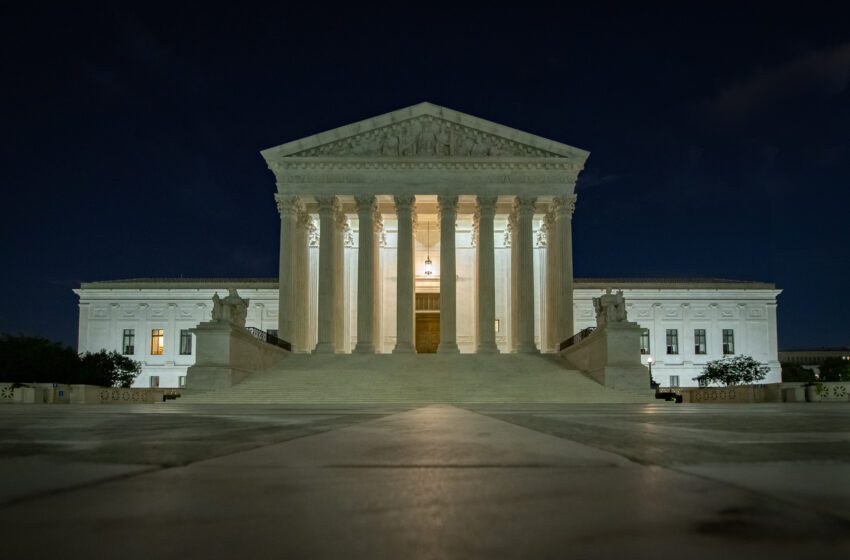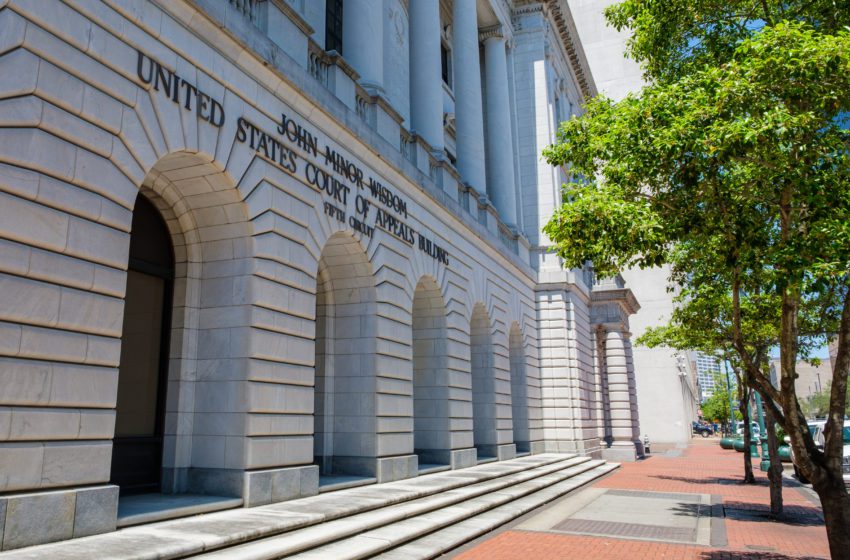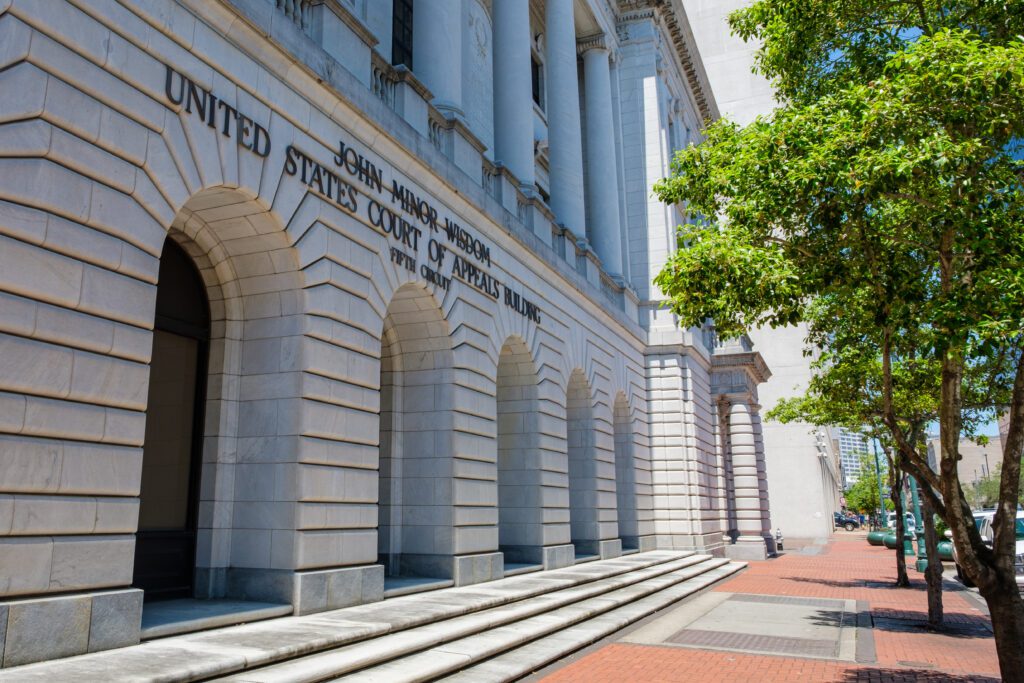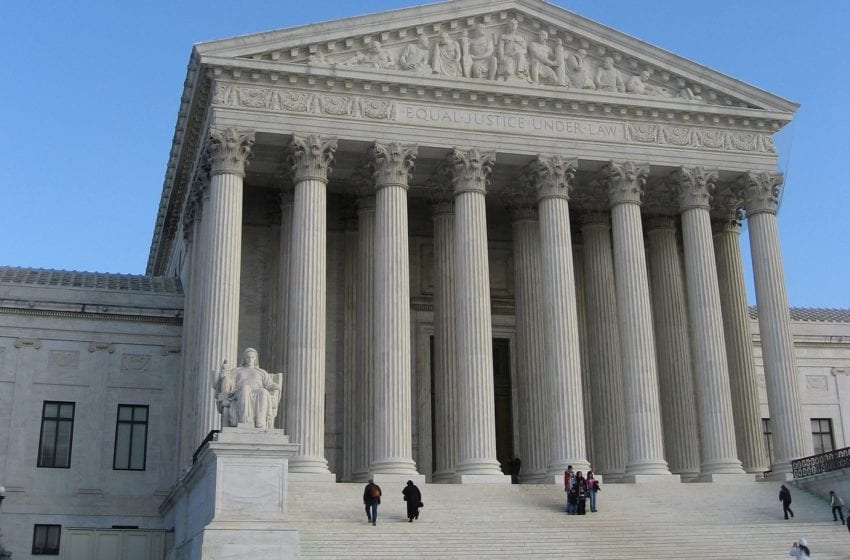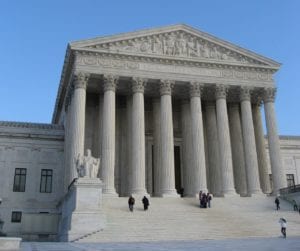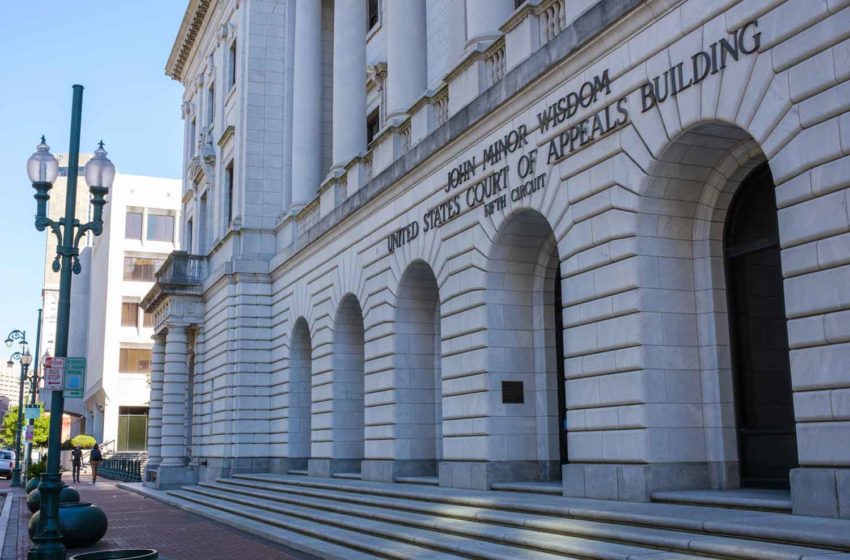The U.S. vaping industry is anxiously awaiting a decision from the highest court in the land.
By Timothy S. Donahue
The Supreme Court of the United States (SCOTUS) is poised to address a crucial case for the vaping industry that challenges the U.S. Food and Drug Administration’s decision to block the marketing of flavored e-cigarette products. The FDA is contesting a lower court ruling that favored two vaping companies, which argue that the FDA unjustly rejected over a million premarket tobacco product applications (PMTAs) to sell flavors other than tobacco or menthol.
Under the agency’s PMTA pathway, companies must demonstrate that the marketing of a product would be appropriate for the protection of public health (APPH). When the FDA makes decisions about vaping products, it must take into consideration the risks and benefits to the entire population, not just users of the products.
The case, Wages and White Lion Investments v. U.S. FDA, is compelling because a major factor in predicting how SCOTUS will rule in the first vaping case to be heard by the high court, and potentially at least three others, is that in the wake of another SCOTUS ruling, courts no longer need to defer to agency interpretation of the law simply because a statute is ambiguous (see “Principle Response,” page 22).
Gregory Conley, an experienced industry attorney and director of legislative and external affairs at the American Vapor Manufacturers Association, said that the overturning of the Chevron deference could have a profound impact on the vaping and broader nicotine industries by reducing the deference courts previously granted to regulatory agencies like the FDA.
“Judges will now critically evaluate the FDA’s regulatory processes and interpretations of ambiguous statutes rather than assuming the agency knows best,” Conley said. “In simpler terms, for the first time since its creation, the FDA’s Center for Tobacco Products will have to follow the law as written.”
Vape companies secured a legal victory when the 5th U.S. Circuit Court of Appeals sided with Wages and White Lion (doing business as Triton Distribution) and Vapetasia when it overturned the orders denying the marketing of the companies’ flavored products. In its decision, the 5th Circuit condemned the FDA’s imposed requisites as “unfair,” noting that the agency “unexpectedly demanded” that the companies present studies demonstrating that flavored products would contribute to smoking cessation.
In January, the en banc panel of the 5th Circuit voted 9-5 to grant the petitions for review. The judges ruled that the FDA had been “arbitrary and capricious,” in violation of a federal law called the Administrative Procedure Act (APA), by denying the applications without considering the companies’ plans to prevent underage access and use.
“Over several years, the [FDA] sent manufacturers of flavored e-cigarette products on a wild goose chase. First, the agency gave manufacturers detailed instructions for what information federal regulators needed to approve e-cigarette products. Just as importantly, FDA gave manufacturers specific instructions on what regulators did not need,” Circuit Judge Andrew S. Oldham wrote in the majority opinion. “The agency said manufacturers’ marketing plans would be ‘critical’ to the success of their applications.
“And the agency promulgated hundreds of pages of guidance documents, hosted public meetings and posted formal presentations to its website—all with the (false) promise that a flavored-product manufacturer could, at least in theory, satisfy FDA’s instructions. The regulated manufacturers dutifully spent untold millions conforming their behavior and their applications to FDA’s say-so.
“Then, months after receiving hundreds of thousands of applications predicated on its instructions, FDA turned around, pretended it never gave anyone any instructions about anything, imposed new testing requirements without any notice, and denied all 1 million flavored e-cigarette applications for failing to predict the agency’s volte-face. Worse, after telling manufacturers that their marketing plans were ‘critical’ to their applications, FDA candidly admitted that it did not read a single word of the 1 million plans.”
The case began when the FDA rejected 55,000 applications to market flavored e-cigarettes in August 2021, including Triton’s, and said applicants would likely need to conduct long-term studies establishing their products’ benefits to win approval. The Office of the Solicitor General asked the Supreme Court to review whether the 5th Circuit’s decision relied upon “legal theories that have been rejected by other courts of appeals that have reviewed materially similar FDA denial orders.”
The regulatory agency’s “legal theories” in Triton are based on administrative fairness and regulatory consistency, not Chevron deference. In most vaping industry lawsuits, appeals courts have supported the FDA, and manufacturers have sought appeals. In the Triton Distribution case, however, the FDA had to petition the court to review the 5th Circuit’s decision, which was based more on APA violations. SCOTUS is scheduled to hear the case sometime during its new session, which begins in October.
Conley explained that, while the end of Chevron signals a new openness by the Supreme Court to scrutinize federal agencies, the 5th Circuit’s opinion focused on matters of statutory interpretation, including procedural conduct and the FDA’s sudden imposition of new standards without proper notification.
“With or without Chevron deference, we believe that the ‘switcheroo’ pulled by the FDA was arbitrary, capricious and not in line with the Administrative Procedures Act,” said Conley. “This stance aligns with the court’s broader view that agencies should not have unchecked power to interpret and enforce ambiguous statutes without clear congressional authorization.”
Much of the lower court’s opinion is based on APA violations. The APA process for creating federal regulations has (typically) three main phases: initiating rulemaking actions, developing proposed rules and developing final rules. In practice, however, this process is often complex, requiring regulatory analysis, internal and interagency reviews, and opportunities for public comments.
At its most basic level, the APA requires that an agency create a draft proposed rule, review/approve it, publish a notice of proposed rulemaking in the Federal Register and open a public comment period of at least 30 days. In a footnote to the Triton decision, the court characterized the FDA’s denial of all PMTAs for nontobacco-flavored e-cigarettes as a “de facto flavor ban” that circumvented the APA’s required notice-and-comment rulemaking process:
“(5) FDA’s categorical ban has other statutory problems. For example, the TCA states that FDA must follow notice-and-comment procedures before adopting a ‘tobacco product standard.’ See 21 U.S.C. § 387g(c)–(d). And Congress specifically called a ban on tobacco flavors a ‘tobacco product standard.’
“See id. § 387g(a)(1)(A) (referring to tobacco flavors, ‘including strawberry, grape, orange, clove, cinnamon, pineapple, vanilla, coconut, licorice, cocoa, chocolate, cherry or coffee, that is a characterizing flavor of the tobacco product or tobacco smoke’); see also id. § 387g(a)(2) (cross-referencing notice-and-comment obligation to revise flavor standards). FDA unquestionably failed to follow § 387g’s notice-and-comment obligations before imposing its de facto ban on flavored e-cigarettes.”
Attorneys from the U.S. Department of Justice told the justices that the 5th Circuit’s ruling “has far-reaching consequences for public health and threatens to undermine the TCA’s central objective of ‘ensuring that another generation of Americans does not become addicted’” to nicotine products.
In court papers, Solicitor General Elizabeth Prelogar told SCOTUS justices that the FDA has never adopted a categorical ban on flavored e-cigarette products. “Rather, it has recognized that, because such products pose a ‘known and substantial risk to youth,’ applicants bear a particularly high burden of proving a potential for benefit to adult smokers that could justify the risk,” she wrote.
Robert Burton, a longtime player in the U.S. vaping industry and current group scientific and regulatory director for the U.K.-based vaping company Plxsur, said that concerning the Triton case, decisions will now need to carry a significant weight of evidence on both sides.
“Without the Chevron precedent, it may come down to a judgment based upon who knows the market and consumer best and who understands ‘best’ what is in the interest of public health, but based upon facts and data rather than a gray area deferral,” said Burton.
Attorney Eric Heyer, who is representing Triton, expressed intense anticipation for the Supreme Court’s hearing of the case. He strongly criticized the FDA for imposing “surprise, after-the-fact … study requirements” and failing to adhere to the guidelines the agency itself had developed.
It is unclear whether SCOTUS will hear the three other vaping-related cases, which are also before it (Magellan Technology Inc. v. Food and Drug Administration; Lotus Vaping Technologies LLC v. Food and Drug Administration; and Logic Technology Development LLC v. Food and Drug Administration). In these cases, vaping manufacturers seek a review of their losses in FDA-issued marketing denial order appeals handed down by various other circuit courts.
Yolonda Richardson, president and CEO of the Campaign for Tobacco-Free Kids, has urged the high court to overturn the appeals court order, emphasizing that if allowed to stand, it could significantly harm public health, particularly that of children. Vaping companies have asserted that their products can mitigate the harm caused by smoking combustible cigarettes.
When the Triton decision was announced, Tony Abboud, executive director of the Vapor Technology Association, welcomed the decision as a “blistering indictment” of the FDA’s Center for Tobacco Products for its “intentional misleading” of the U.S. e-cigarette industry.
“The court was so stupefied by the FDA’s bad-faith efforts to reject all flavored e-cigarette products [that] it cited Shakespeare to illustrate the full extent of the FDA’s disingenuity, particularly after the court explained that the plaintiffs in that case provided scientific evidence that e-cigarettes ‘save lives,’” Abboud said. “The court also emphasized the dramatic and abrupt ‘FDA flip-flop,’ which led to the implementation of what the court called a ‘de facto ban’ on flavored e-cigarette products in the U.S.
“This was in addition to the voluminous jurisprudence cited by the court laying bare just how egregious the behavior of the FDA administrative state has been toward e-cigarette products and the consumers that use them. As the court stated, ‘No principle is more important when considering how the unelected administrators of the fourth branch of government treat the American people.’”
Triton Cited as Precedent by 5th Circuit
The U.S. Food and Drug Administration is starting to see vapor on the horizon. The regulatory agency has been handed another brutal defeat by a federal court. The 5th Circuit Court of Appeals granted petitions for review to five vaping companies, citing its own decision in the Triton Distribution case as precedent.
The court sent the company’s marketing denial orders (MDOs) back to the FDA for additional scientific evaluation. As a result, the manufacturers may keep selling their products until the agency completes new reviews of their premarket tobacco product applications (PMTAs) or until the Supreme Court takes action.
“Specifically, the court determined that (1) FDA did not give e-cigarette manufacturers fair notice of the rule requiring long-term studies for PMTAs; (2) FDA did not acknowledge or adequately explain its change in position; and (3) FDA ignored reasonable and serious reliance interests that manufacturers had in the pre-MDO guidance,” the 5th Circuit wrote in its ruling.
Five companies, Cloud House, Paradigm Distribution, SWT Global Supply, Vaporized and SV Packaging, first challenged their MDOs in court in October 2021. The court consolidated the five cases, and in November 2021, all petitioners were granted stays pending review.
In January, the 5th Circuit found in favor of Wages and White Lion Investments (doing business as Triton Distribution) in the e-liquid manufacturer’s appeal of an MDO. The FDA later petitioned the Supreme Court to review the 5th Circuit’s ruling, and last month, the Supreme Court agreed to hear the agency’s appeal.
The FDA challenged the Triton decision, and the U.S. Supreme Court agreed to hear that case. “But now, another panel of the 5th Circuit has applied the same rationale as in Triton to hold that these five, small-business manufacturers prevail for the same reason: FDA pulled a surprise switcheroo,” wrote the United States Vaping Association on X.
“From 2018 to 2020, FDA provided a ‘dizzying’ array of detailed instructions explaining the requirements for PMTAs,” the opinion states. “But ‘[n]ever in this long, winding and byzantine regulatory process of meetings, PowerPoint decks, proposed rules, comment periods, guidance documents and enforcement priorities did FDA ever say that it was contemplating an across-the-board ban on flavored products. Nor did FDA ever give fair notice that flavored product manufacturers had to submit robust scientific studies on flavored e-cigarette products.’”
The 5th Circuit found that the recent petitions posed the same issues as Triton’s. “Petitioners spent substantial time and resources preparing their PMTAs based on FDA guidance that they would not need to submit long-term clinical studies,” the court wrote. “Nevertheless, FDA rejected their PMTAs using the same boilerplate language it used for the Wages petitioners’ denials as well as those of thousands of other e-cigarette manufacturers.
“Accordingly, for the reasons amply explained by the en banc court in Wages, we hold that FDA acted unlawfully here as well by denying petitioners’ PMTAs based on the absence of long-term clinical studies.”
The FDA’s failure was not simply a failure to provide notice that a particular type of study was required (long-term studies) but a failure to provide notice of the substantive standard requiring comparison between the flavored products at issue and tobacco-flavored juices, according to the USVA.
“USVA members have now won important legal precedent in the 11th and 5th Circuits,” the USVA posted. “Note that manufacturers who didn’t file a petition in a court of appeals to challenge their MDOs can still sue in district court, and if you’re in the 5th or 11th Circuit, you have binding precedent in place that should provide a solid prospect of securing a quick ruling vacating your MDO.”
